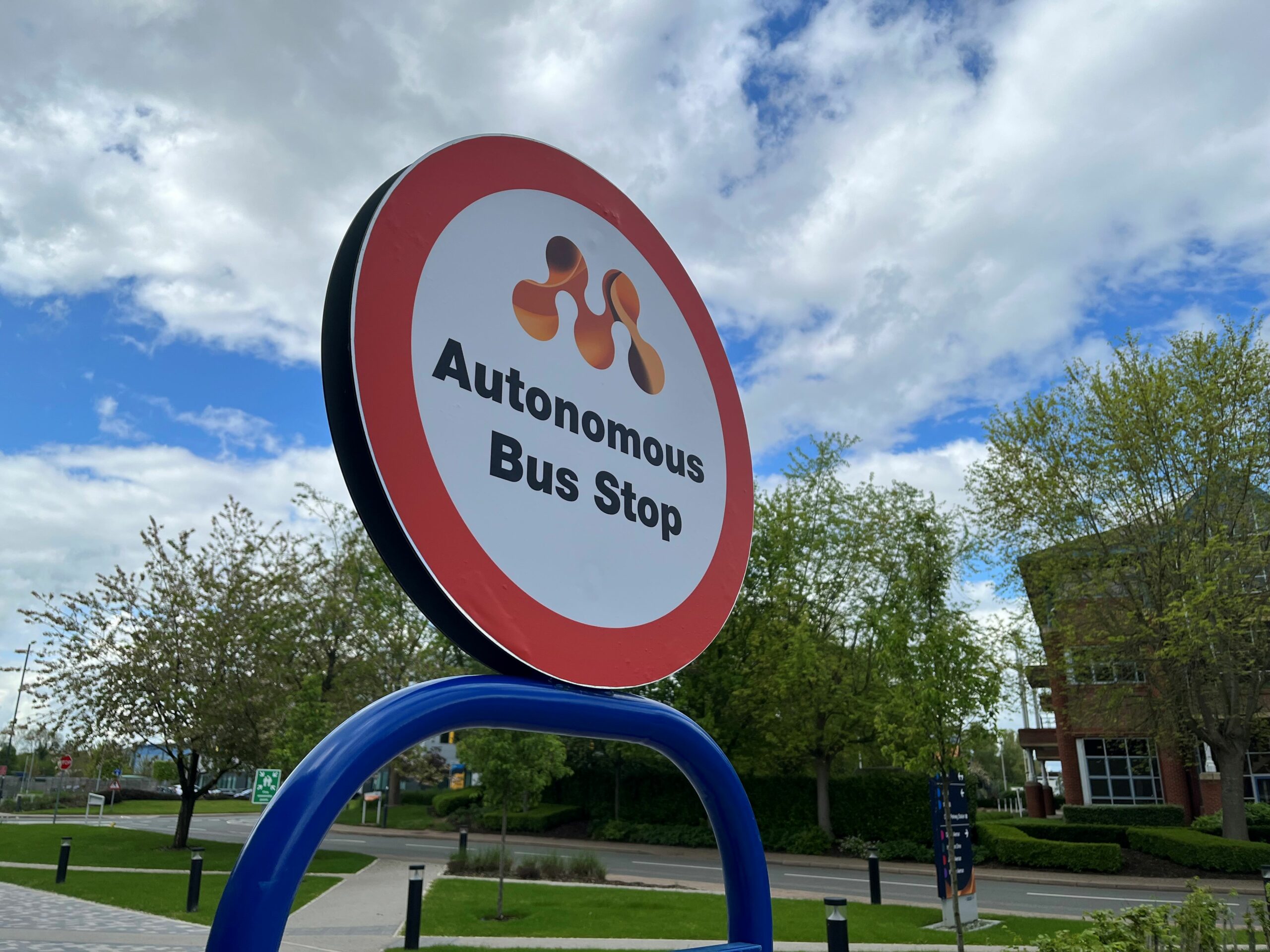
Season 5, Post 19: The autonomous bus stops here
Self-driving cars have been a feature in the US for some time. Most services are limited to specific boroughs and the trend is by no means widespread. The British have not been quite yet ready to embrace the technology, but an autonomous bus service has been operating on an Oxford business park since March. In the interests of research, your intrepid author travelled up to Milton Park in the hope of finding out more.
Milton Park represents a logical location for a trial. It is a science campus close to Oxford that is home to around 250 companies and approximately 9,000 employees. The service, a 15-seater single decker minibus, operates on a circular route round the park every 15 minutes during business hours. Passengers are reassured that a qualified driver will be on board at all times, able to take control of the vehicle, should it become necessary.
So far, so good. However, when your author arrived at the bus stop last week, an A4 piece of paper was taped over the timetable. Dated April 4, it stated that “phase one of the trial had now concluded” and that “phase two will start within the next few weeks.” Given the absence of evidence of phase two (and no bus ride), your author was forced to do some old-fashioned research and ask members of the public what they had made of phase one. Local employees were invariably positive, describing the service as “a real success.” Phase two will see the service extended to nearby Didcot rail station, apparently by “popular demand.” An alternative view was provided by several taxi drivers. Notwithstanding the risk to their business, the (perhaps valid) point was made that other drivers may become frustrated by a vehicle that is restricted to driving at just 15 miles per hour. Some people also “feel uncomfortable” at the sight of a driverless bus. The route to Didcot station is also necessarily more complicated, on some main roads with more potential hazards, relative to the science park.
These anecdotes are insightful, since they provide a great snapshot of both the opportunities and the challenges faced by autonomous transport solutions, a topic we first discussed in 2017. There tends to be inevitable resistance to the novel, particularly if it comes in a driverless form. Nonetheless, we should expect more autonomous trials. Environmental imperatives will also drive the momentum (no pun intended). Autonomous buses (and cars) are typically 100% electric and hence emission free. Oxford County Council, for example, has set a target to achieve a net-zero transport network by 2040. The technologies underpinning autonomous vehicles such as vision sensing should also continue to get better, improving the experience both for passengers and other drivers. Your author certainly hopes that he will have the luck to be able to report on an improved service before not too long…
17 May 2023
The above does not constitute investment advice and is the sole opinion of the author at the time of publication. Past performance is no guide to future performance and the value of investments and income from them can fall as well as rise.
Click here to view all Blog posts
Alex Gunz, Fund Manager
Disclaimers
The document is provided for information purposes only and does not constitute investment advice or any recommendation to buy, or sell or otherwise transact in any investments. The document is not intended to be construed as investment research. The contents of this document are based upon sources of information which Heptagon Capital LLP believes to be reliable. However, except to the extent required by applicable law or regulations, no guarantee, warranty or representation (express or implied) is given as to the accuracy or completeness of this document or its contents and, Heptagon Capital LLP, its affiliate companies and its members, officers, employees, agents and advisors do not accept any liability or responsibility in respect of the information or any views expressed herein. Opinions expressed whether in general or in both on the performance of individual investments and in a wider economic context represent the views of the contributor at the time of preparation. Where this document provides forward-looking statements which are based on relevant reports, current opinions, expectations and projections, actual results could differ materially from those anticipated in such statements. All opinions and estimates included in the document are subject to change without notice and Heptagon Capital LLP is under no obligation to update or revise information contained in the document. Furthermore, Heptagon Capital LLP disclaims any liability for any loss, damage, costs or expenses (including direct, indirect, special and consequential) howsoever arising which any person may suffer or incur as a result of viewing or utilising any information included in this document.
The document is protected by copyright. The use of any trademarks and logos displayed in the document without Heptagon Capital LLP’s prior written consent is strictly prohibited. Information in the document must not be published or redistributed without Heptagon Capital LLP’s prior written consent.
Heptagon Capital LLP, 63 Brook Street, Mayfair, London W1K 4HS
tel +44 20 7070 1800
email [email protected]
Partnership No: OC307355 Registered in England and Wales Authorised & Regulated by the Financial Conduct Authority
Heptagon Capital Limited is licenced to conduct investment services by the Malta Financial Services Authority.



